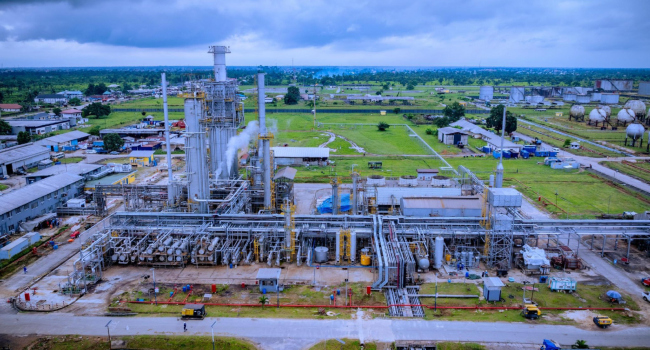The Nigerian National Petroleum Corporation Limited (NNPCL) recently announced the shutdown of Unit 10 in Area 5 of the Port Harcourt Refinery (PHRC), citing sustainability concerns.
However, sources within the refinery suggest a more troubling reality. The decision stems from the underperformance of the current operations and maintenance (O&M) contractor, whose alleged inefficiencies have led to a complete halt in production.
The official narrative from NNPCL frames the shutdown as a strategic move to ensure long-term sustainability.
Yet, insiders paint a different picture. According to multiple sources familiar with the matter, the shutdown resulted from a failure to maintain consistent product quality and to perform routine maintenance tasks. These shortcomings reportedly rendered operations unsustainable, forcing the unit offline.
Unit 10 of Area 5 (Old Refinery) had only recently resumed stable operations after years of dormancy.
Its shutdown not only disrupts production but also casts a shadow over the broader rehabilitation efforts at the Port Harcourt Refinery, one of Nigeria’s most vital energy assets.
The roots of the current controversy trace back to July 2024, when Italian engineering firm Tecnimont successfully completed the rehabilitation and testing of the Area 5 infrastructure. The project was ambitious, involving the revival of facilities that had been inactive for over a decade.
Tecnimont’s work culminated in the reactivation of Unit 10 in November of the previous year, following a prolonged fine-tuning phase. The plan was to gradually bring additional units 12, 14, and 17 online, thereby completing the full commissioning of Area 5.
The Port Harcourt Refining Company (PHRC), acting through the Nigerian Engineering and Technical Company (NETCO), appointed EPROM, an Egyptian O&M firm, to take over operations. This decision marked a significant departure from earlier directives that emphasised the need for an internationally recognised contractor.
EPROM’s appointment has raised eyebrows across the industry. While technically a foreign entity, EPROM lacks a robust international portfolio.
According to its own website ([Projects – EPROM](https://eprom.com.eg/projects/)), its only projects outside Egypt are in Nigeria: the Port Harcourt Refining Company and the Warri Refining & Petrochemicals Company. This limited exposure has sparked concerns about the company’s capacity to manage a facility as complex and strategically important as Port Harcourt’s refinery.
The controversy deepens with allegations that EPROM is employing predominantly Egyptian personnel, many of whom reportedly lack valid Nigerian work visas. Only a handful of local workers three or four have been hired, according to internal sources.
This situation appears to contravene Nigeria’s Local Content policies, which are designed to ensure that local communities benefit from industrial operations through employment and capacity building. The apparent disregard for these policies has drawn criticism from labour unions, civil society groups, and local stakeholders.
The decision-making process that led to EPROM’s appointment remains opaque. Industry observers have questioned why a company with limited international experience was chosen over more established firms with proven track records.
The shutdown of Unit 10 at the Port Harcourt Refinery underscores systemic challenges in Nigeria’s energy sector. The appointment of a contractor with limited international experience, coupled with allegations of non-compliance with local content policies, raises serious concerns about operational efficiency and transparency.
It’s imperative that NNPCL addresses these issues head-on to restore public trust and ensure the refinery fulfils its strategic role in achieving energy self-sufficiency.
A senior official familiar with operations at the Port Harcourt Refinery, speaking on condition of anonymity, said, “The shutdown of Unit 10 has had immediate operational consequences. Production targets have been missed, and the timeline for bringing additional units online has been pushed back indefinitely. This delay threatens to undermine Nigeria’s broader energy strategy, which hinges on revitalizing domestic refining capacity to reduce dependence on imported fuel.”
Many see the Port Harcourt situation as symptomatic of a broader pattern in Nigeria’s energy sector, where short-term decisions often undermine long-term goals. The preference for expedient solutions over strategic planning has, they argue, led to a cycle of underperformance and missed opportunities.
As the shutdown drags on, pressure is mounting on NNPCL and PHRC to take corrective action. The shutdown of Unit 10 at the Port Harcourt Refinery has exposed deep fissures in NNPCL’s approach to managing its critical energy infrastructure. What began as a technical issue has morphed into a broader debate about contractor selection, local content, and institutional transparency.





